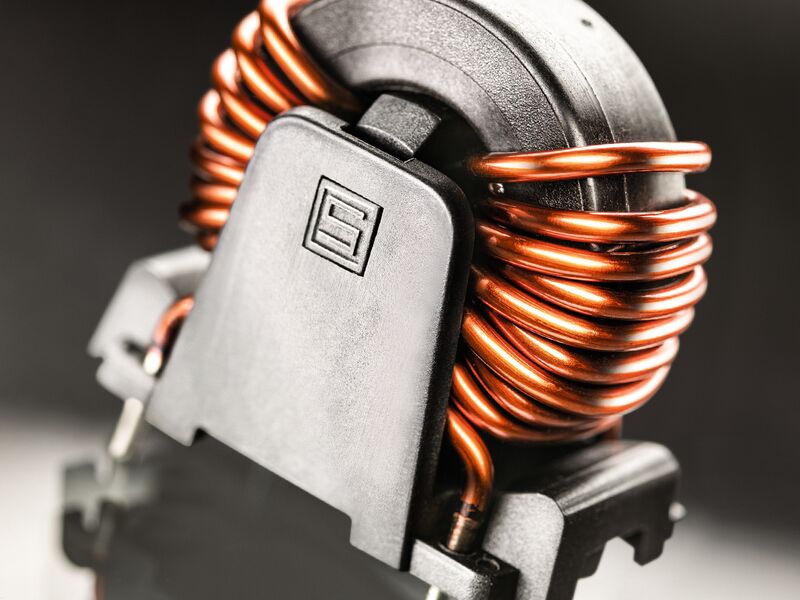Reliable electronic components and HMIs for EV charging stations
Need a specific component or HMIs for your EV chargers? We have the right solution for you.

Electric Vehicle Charging Systems
The rapid increase in electric vehicles on our roads presents us with new challenges. Especially in terms of infrastructure and charging station technology.
Various charging situations
Charging speed influences electromobility
The easiest situation for charging an electric vehicle is when the vehicle is parked at home or work. On average, this is the case 90% of the time. The standard speed of 11 kW/h wallboxes is sufficient for this type of charging.
Other standards apply to public fast charging stations. The charging speed plays a decisive role, as the EV charging time must be waited for. The fastest possible charging is desirable here. In the meantime, battery packs are already being discussed which should allow a full charge in 10 minutes.

User-friendliness of charging stations is crucial
Another important aspect of the use of fast-charging stations is user-friendliness. According to experts, this has some catching up to do compared to conventional petrol stations. One of the main reasons is the lack of transparency of charging prices, which can vary depending on the provider, location and time of day. There are also charging networks that require registration and the recording of payment details in advance. These factors make charging while travelling more difficult if the usual stations cannot be used.
We offer sunlight-readable and weather-resistant displays with high colour brilliance as well as touchscreens, membrane keypads and buttons without mechanically moving parts. Equipped with these, public charging stations can guarantee reliable operation all year round at all conceivable locations and make it easier for users to operate the charging stations.

Optimised products for the charging infrastructure provide a remedy
Suppressing electromagnetic emissions
We offer solutions that help to ensure the reliability and user-friendliness of fast charging stations.
By using high-quality EMC components such as electromagnetic Interference filters and EMC chokes, unwanted interference signals can be effectively suppressed, enabling safe and efficient charging. These EMC products are designed for a wide temperature range from -40 to +100°C.
Components for wallboxes

Application
Safe power supply for wall charging stations for electric vehicles with outputs up to 22 kW.
DKIV-1
Compensated high current choke. Compact size and light weight. Available with nanocrystalline or ferrite ring cores.
CSO
Heavy duty fuse clip. Special copper alloy material for high efficiency. Very low contact resistance.Components and HMI for fast charging stations

Application
EMC products for fast charging stations for electric vehicles from 22 kW.
FMAC NEO
1-stage filter for 3-phase systems. Compact design with small footprint. Light weight design.
HMI Input Systems
Customised operating unit (HMI Human Machine Interface) e.g. PCAP (projected capacitive) touch panel with printed glass front and bonded display or resistive glass-film-glass touch panel.
PSE
Piezo switch with housing material types: aluminum, brass chrome-plated or stainless steel. Long lifetime with more than 20 Mio. actuations.
DKUH-1 High-Current Choke
For energy applications with particularly high power levels on the circuit board, SCHURTER offers an expanded choke family. The DKUH-1 common mode chokes are designed for currents up to 100 A and a rated voltage up to 800 VDC.Components for on-board chargers

DKIH-1
Compensated high current choke. Compact size and light weight. Open design optimizes heat dissipation. Nanocrystalline or ferrite ring cores.
Customised winding goods
Windings on customised coil formers and on various core shapes. Nanocrystalline or ferrite ring cores.Components for emergency charging cables

Application
Protection of the charging cable for on the road.
DKIH-3
3-phase choke with compact and light weight design. Open design optimizes heat dissipation. Nanocrystalline or ferrite ring cores.Get to know our products for the various charging processes
Determine the best EMC and HMI components for your project.
Why are EMC components are crucial for EV charging stations (EVCS)?
Electrical Interference Mitigation: EV charging stations generate electromagnetic interference (EMI) during operation, which can affect nearby electronic devices and communication systems. EMC components help to mitigate this interference, ensuring that the charging station operates smoothly without disrupting other nearby devices or systems.
Compliance with Regulations: Many countries have regulations and standards in place regarding electromagnetic interference. Compliance with these regulations is essential for the approval and operation of EV charging stations. EMC components help ensure that the charging station meets these regulatory requirements.
Reliability and Safety: Proper EMC design enhances the reliability and safety of EV charging stations. By reducing electromagnetic interference, EMC components help prevent malfunctions or damage to the charging station itself and nearby electronic equipment.
Customer Satisfaction: Effective EMC design contributes to a better user experience for EV owners. It minimizes the risk of charging interruptions or issues caused by electromagnetic interference, leading to increased customer satisfaction and confidence in EV technology.
Overall, EMC components play a critical role in ensuring the efficient, reliable, and safe operation of EV charging stations, making them indispensable to the infrastructure supporting the widespread adoption of electric vehicles.
Which of our EMC components are suitable for your electric vehicle charging stations?
These 2 product examples illustrate how our EMC components can be integrated into the design of EV charging stations to enhance electromagnetic compatibility and ensure reliable operation.
EMI Filters: We offer various types of EMI filters, such as our FMAB series, designed specifically for high-voltage applications like EV charging stations. These filters help to suppress conducted electromagnetic interference and ensure compliance with EMC standards.
Common Mode Chokes: We offer common mode chokes, such as their DKIH series, designed to suppress common mode noise in AC and DC applications. These chokes can be used in the power supply and communication circuits of EV charging stations to reduce electromagnetic interference.






